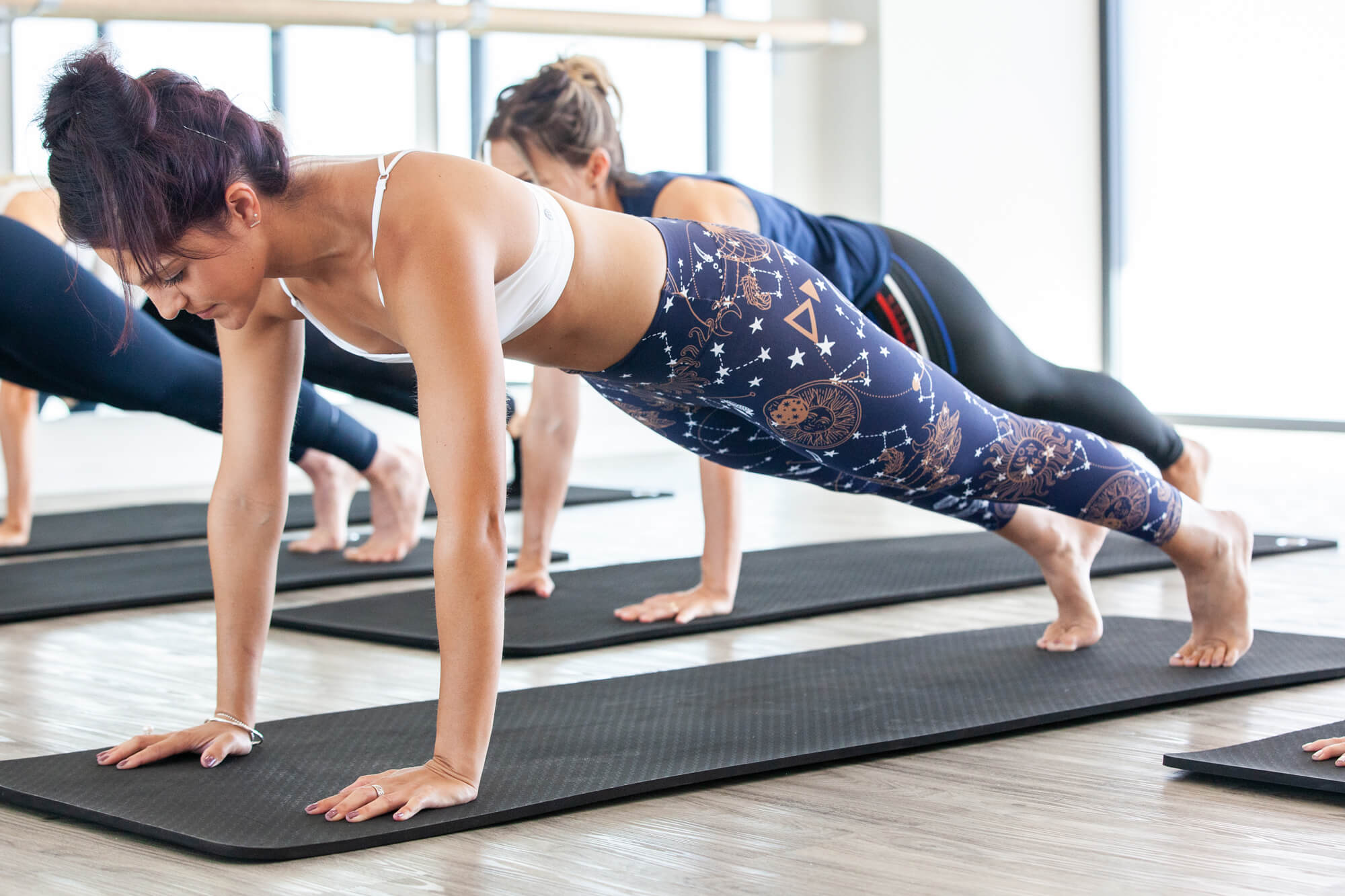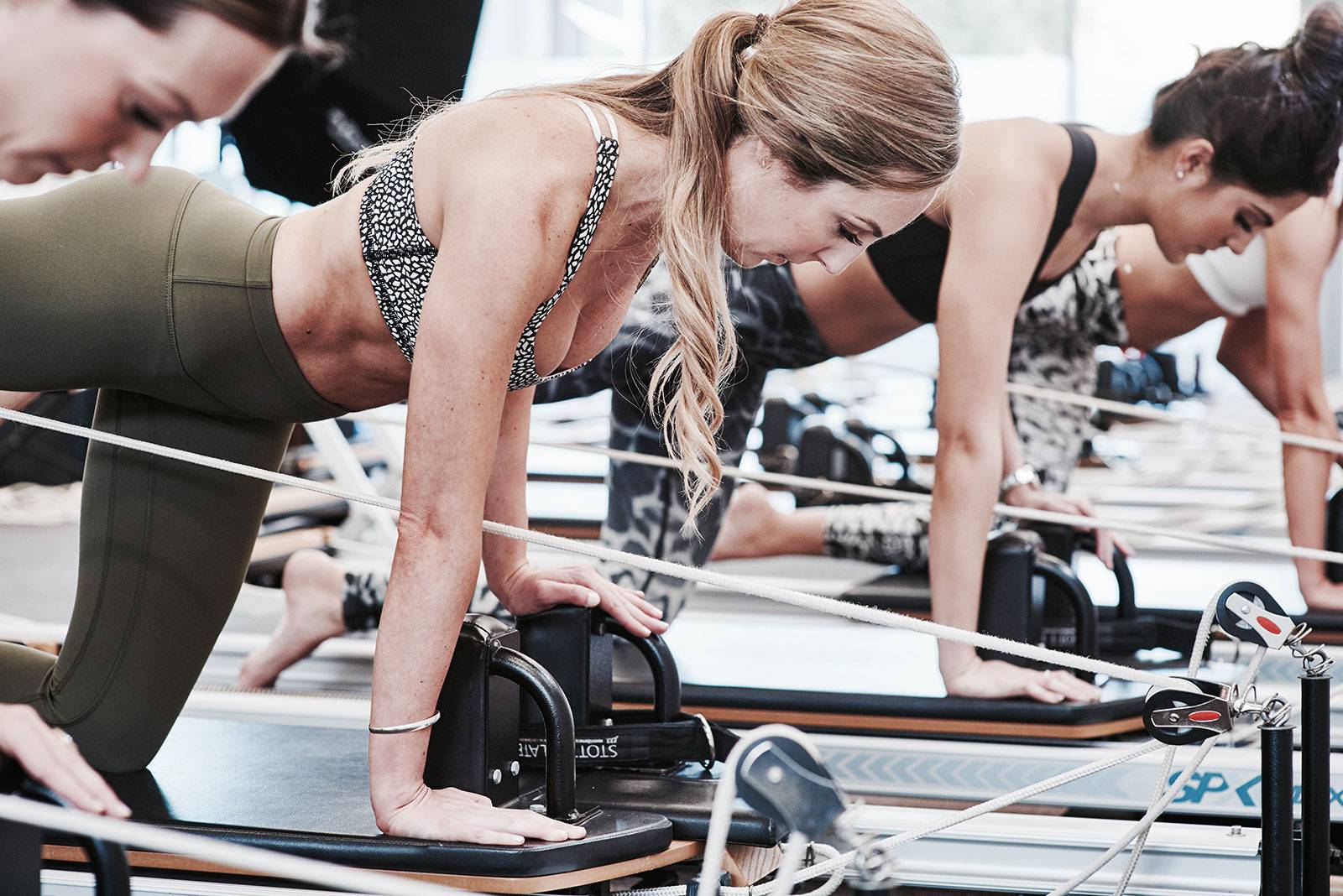Are you an older adult looking to improve your overall health, increase mobility, improve balance, and build strength? If so, maybe you have heard about the benefits of Pilates.
However, some individuals feel intimidated by the practice, worry they are too old to try something new or aren’t sure if Pilates is safe for them.
In this article, we’ll cover the benefits of Pilates for seniors and answer some frequently asked questions so you can learn more about how Pilates can help you age gracefully and comfortably.
8 Benefits of Pilates for Seniors
1. Boosts Immunity
Studies have demonstrated that Pilates can help boost immunity. This is likely due to increased blood circulation and lymph flow that supports the body’s natural ability to oxygenate muscles and remove toxins.
2. Improved Mobility, Joint Stability, and Posture
Ageing causes changes in posture, resulting in a more rounded, stooped position. This hunched posture puts increased strain on the joints and may limit mobility. It can also lead to tight, imbalanced muscles and compression of the organs.
These posture and mobility changes make it difficult to go about daily activities, such as reaching up high for something, climbing stairs, or bending down to pick something up off the floor.
Pilates focuses on keeping the body balanced and aligned. Through low-impact movements, Pilates workouts help improve joint mobility and stability. This can lead to better posture and the improved ability to go about daily activities safely and comfortably.
Workouts that only focus on strength can lead to stiff, tight muscles that are prone to injury. Stretching is wonderful, but muscles also need to be maintained and challenged. Pilates classes offer an ideal way to improve both strength and mobility, resulting in a stronger body, and muscles that are more supple and limber.
3. Improved Body Awareness and Balance
Balance and body awareness decrease with age, making falls a common cause of injury among older adults. If you have experienced a fall as a result of loss of balance or mobility, you know how much it can decrease your confidence.
Pilates classes feature functional movements that help prepare the body for daily activities. These functional movements can help you feel more confident as you go about your day and make you less susceptible to injuries.
With a focus on mindfulness and purposeful breathing, Pilates is an excellent way to improve your self-awareness, mind-body connection, and proprioception. These improvements can help you be more aware of your surroundings and help you react faster in situations that require coordination and balance.
Pilates focuses on movements that challenge the mid-range of the body rather than the extremities, such as the legs and arms. By developing the mid-range first, Pilates can help older individuals improve their mobility, stabilise their joints, improve their range of motion, and gain control over their bodies.
4. May Help Improve Bone Density
Low bone density puts individuals at an increased risk of bone fractures. Studies indicate that Pilates may help improve bone density and counteract the effects of osteoporosis.
Pilates involves weight-bearing exercises that help support bone density while still offering a gentle, low-impact workout that is easy on the joints. It is important to have a knowledgeable instructor who knows how to safely modify exercises for individuals with osteoporosis. Our instructors at The Pilates Lab are trained in dealing with a wide range of conditions, from ageing to pregnancy to post-injury rehabilitation.
5. Improved Breathing and Circulation
The more rounded, stooped posture that often results from age can cause breathing to become more laboured. When the ribs and muscles that support breathing become weak and stiff, it can cause a lack of oxygen and decreased blood circulation.
Pilates can help improve breathing and circulation by:
- Counteracting poor posture
- Strengthening the core muscles
- Lengthening a tight ribcage
- Strengthening the muscles responsible for breathing
- Promoting a more efficient respiratory system
6. Improved Strength
With age, flexibility and strength deteriorate, especially in physically inactive individuals. Decreased muscle mass results in a negative impact on daily activities.
Pilates is a gentle yet effective way to help counteract age-related strength loss. Pilates classes also help promote flexibility to keep muscles supple by overcoming rigidity with mid-range motion exercises.
7. A Natural Mood Boost and Stress Reducer
The combination of focused breathwork, movement, and mindfulness makes Pilates a wonderful way to naturally reduce stress and improve mood. This study demonstrates the ability of Pilates to help improve mood and quality of life in older adults.
8. Memory and Cognitive Function Support
Feeling like you are in a mental fog lately? Workouts such as Pilates bring blood to the brain, helping to support the development of new neurons. These neurons are responsible for learning, memory, and thinking, meaning Pilates may help support a sharper memory and clearer thinking.
FAQs About Pilates for Seniors
- Can I Do Pilates If I’m Not Flexible?
Yes. Although many people think Pilates requires a high degree of flexibility, your instructor can modify the moves to accommodate a wide range of fitness levels and health conditions. Whether you are flexible or not, you can try a beginner Pilates class. With continued classes, you can enjoy an improvement in your flexibility, mobility, and joint stability.
- Can People with Chronic Pain do Pilates?
As long as your healthcare professional gives you the okay, you can do Pilates even if you have chronic pain. Pilates may even help you manage or reduce your chronic pain. It is important to listen to your body and find an experienced Pilates instructor who understands age-related conditions, injury recovery, and modifications. Always check with your healthcare provider before beginning a new exercise class and let your instructor know about any chronic pain you have.
- Can I Do Pilates After Surgery or an Injury?
Pilates is an excellent form of rehabilitation after an injury or surgery, especially shoulder, knee, or hip operations. As always, consult with your doctor before beginning any exercise program, and let your Pilates instructor know about any surgeries or injuries.
- Can I Do Pilates If I Can’t Lay Flat?
Individuals with gastric reflux, vertigo, or other conditions may find it uncomfortable to complete exercises while laying flat. Pilates classes can be modified so you can complete moves while sitting or standing instead of lying down. Let your instructor know if you feel uncomfortable while lying down.
- Am I Too Old to Try Pilates?
No. As long as you are cleared by your healthcare provider to participate in Pilates classes, you are never too old to try something new!
What is the Best Pilates Workout for Seniors?
Older clients may want to consider Pilates for beginners classes to see if the group setting is suitable or a private Pilates session.
Our Intro to Pilates course is designed to cover all the fundamentals, including breathing, proper core activation, mind-body connection, and Pilates terminology.
There are numerous benefits of private Pilates sessions. Our private Pilates sessions are an excellent option if you have specific health concerns or a previous injury. In a one-on-one Pilates session, one of our experienced trainers can evaluate your current fitness level, pinpoint problem areas, discuss any concerns with you, and get you started safely on your Pilates journey.
Related Reading: A Complete Guide to Your First Pilates Session
What Are the Considerations for Older Adults Who Want to Take Pilates Classes?
Before taking a Pilates for beginners class, consult with your doctor. It’s also important to make your instructor aware of any conditions you have so your instructor can make the appropriate modifications and guide you through the movements safely.
Certain exercises are contraindicated for individuals with certain conditions, such as osteoporosis. A good Pilates instructor will help you complete Pilates for beginners’ workouts that are effective and, most importantly, safe.
Can Pilates Movements Be Modified for Older Adults?
Yes, Pilates movements can be modified to accommodate almost any condition. For instance, individuals with osteoporosis may need to avoid forward flexion.
A trained instructor will modify exercises to eliminate the forward flexion motion while still providing a challenge. Instructors may also utilise props to help support the spine or get clients into a safe position for completing a particular movement.
Looking for Pilates Scarborough Classes?
Pilates is a safe, effective, gentle way to work out. It can be an ideal form of exercise for older individuals who want to age as gracefully as possible.
If you are an older individual and have questions about our Pilates classes or would like to join us for a class, please contact us. We’d be happy to discuss which of our Pilates classes is right for you and help you get started.


